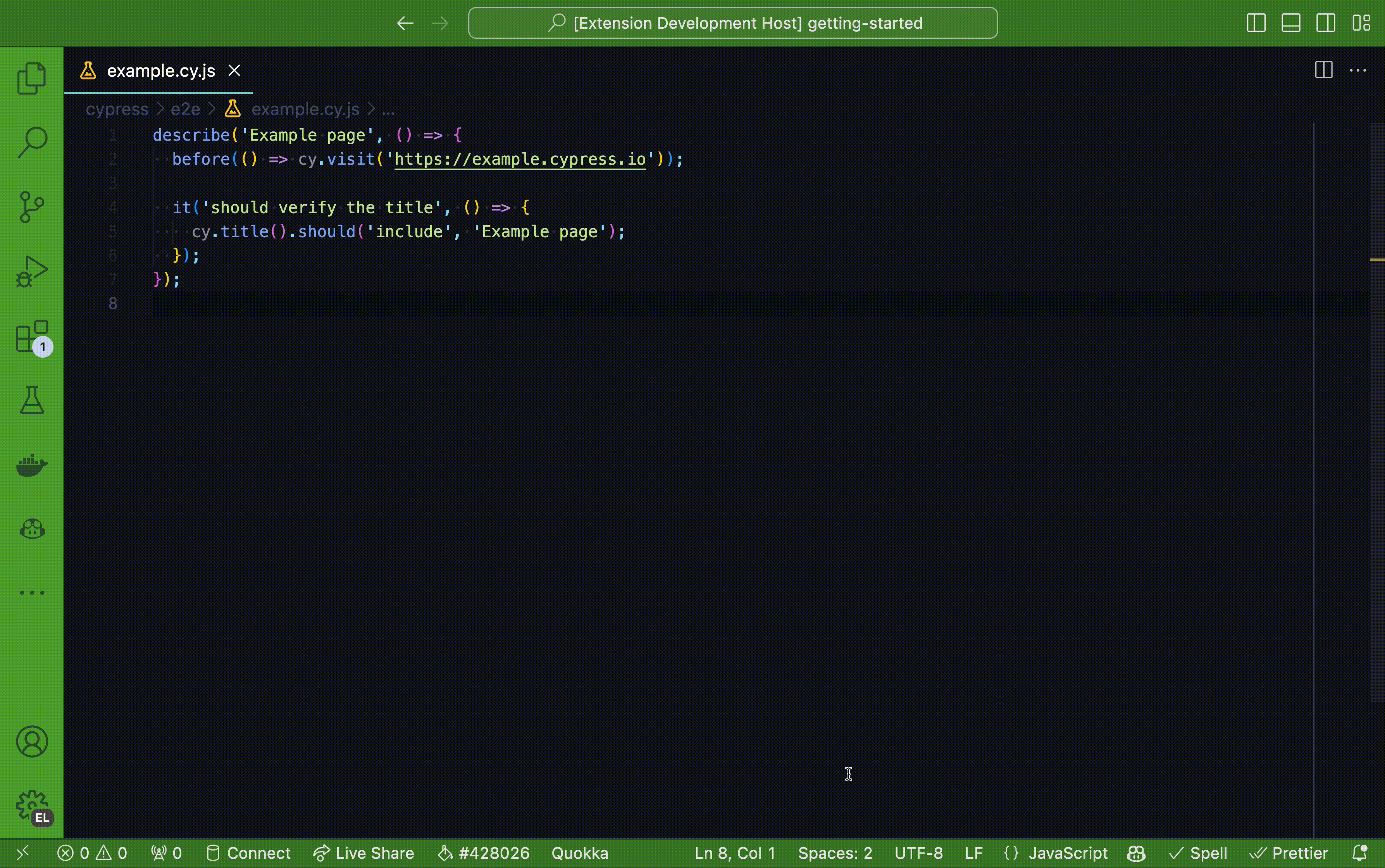Doorman is a simple, lightweight VSCode extension that allows you to link and open test cases from your favorite test case management tool directly in VSCode.
- Link test cases from your test management tool directly in VSCode
- Open test cases in your default browser
- Supports multiple test management tools
- Supports multiple test case formats
This extension contributes the following settings:
doorman.configurations: List of configurations for your test management tools and test case formatsdoorman.configurations[].title: Title of the configurationdoorman.configurations[].url: URL of the test management tooldoorman.configurations[].testIdPattern: Regular expression to match test case ID in the test case format
For example:
Your test management tool is TestRail and test case format is [S123]. So, your test looks like this:
it('[S123] should verify the title', () => {
// ...
});Then you can add the following configuration in your .vscode/settings.json:
{
"doorman.configurations": [
{
"title": "🔗 Open test case in TestRail",
"url": "https://testrail.example.com/index.php?/cases/view/S",
"testIdPattern": "\\[S(\\d+)\\]"
}
]
}After that you will see the following title in the code block:
By clicking on the title you will open the test case in your default browser.
The URL will be generated based on the configuration. In this case it will be https://testrail.example.com/index.php?/cases/view/S123.
There is some useful regular expressions for popular test case formats:
[S123]-\\[S(\\d+)\\]
it('[S123] should do something', () => {});@S123-@S(\\d+)
it('@S123 should do something', () => {});S123-S(\\d+)
it('S123 should do something', () => {});S-123-S-(\\d+)
it('S-123 should do something', () => {});S_123-S_(\\d+)
it('S_123 should do something', () => {});.S123.-.S(\\d+)\\.
it('.S123. should do something', () => {});@S-123-@S-(\\d+)
it('@S-123 should do something', () => {});:S123:-:S(\\d+):
it(':S123: should do something', () => {});Yevhen Laichenkov elaichenkov@gmail.com

